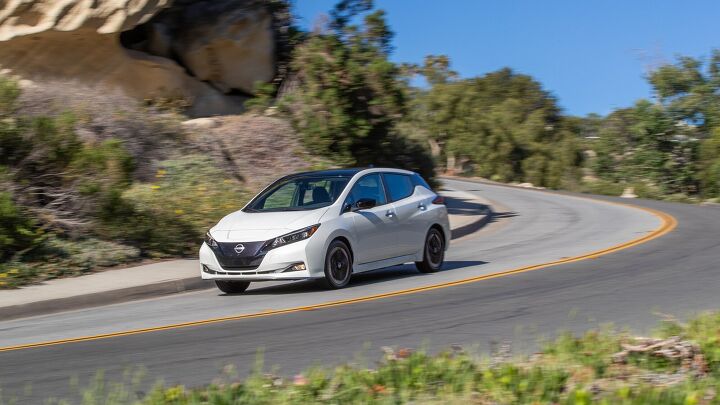
The Nissan Leaf was already the most affordable EV on sale, but recent changes have made it even cheaper. The automaker announced that the car has regained eligibility for federal tax credits, though for only half of the maximum $7,500.
With the credit, the Leaf starts in the mid-$25,000 range, extending its lead as the cheapest EV on sale. It’s followed not-so-closely by the Mini Cooper SE, but regaining tax credit eligibility is a significant boost. The car qualified for tax credits through the end of last year, but automakers have to recertify vehicles under the new rules, and Nissan has only just done that for the Leaf.
Half of the EV tax credit is tied to raw materials sourcing, requiring that they come from a country with which the U.S. has a free-trade agreement. The Leaf doesn’t qualify for that half, but Nissan builds the car and its batteries at its plant in Smyrna, Tennessee, giving it access to the other $3,750. Changes to the rules in 2024 have knocked a significant number of vehicles out of eligibility, but many will return as automakers nail down their supply chains.
The Leaf has been around for a while without major changes, and its low price likely comes from its middling range numbers, which max out at 212 miles. That said, it’s a surprisingly practical car with plenty of interior space and a decent number of standard features for the price.
While it’s true that Americans don’t buy that many hatchbacks, it’s even truer that cars like the Nissan Leaf are precisely what we need. There’s no shortage of $50,000-plus EVs from all corners of the auto industry, but the sub-$30,000 (or even sub-$40,000) market is pathetically tiny. Anyone serious about electrification should celebrate cars like the Leaf and hope that Nissan keeps its ship upright going forward to keep building it, or a next-gen car like it.
[Image: Nissan]
Become a TTAC insider. Get the latest news, features, TTAC takes, and everything else that gets to the truth about cars first by subscribing to our newsletter.

